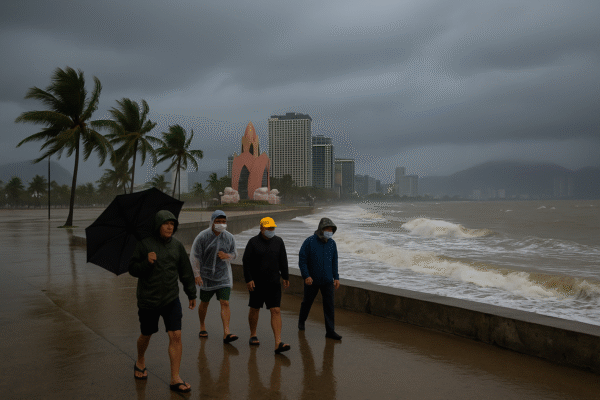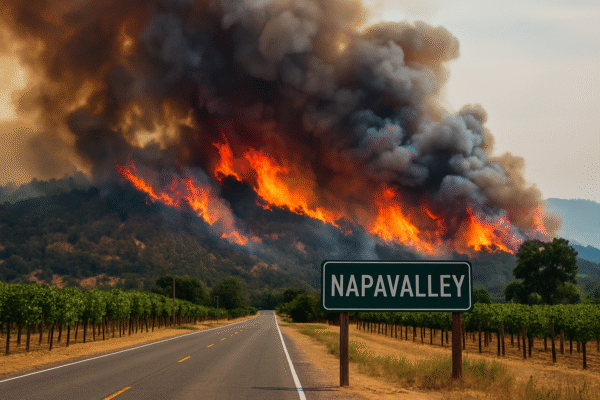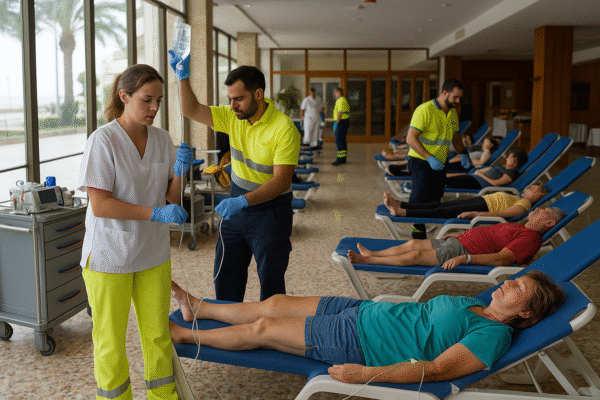The Pacific Islands are turning to sustainable gastronomy as a strategic pillar for eco-friendly tourism, aiming to enhance cultural authenticity, strengthen local economies, and offer travelers immersive food experiences. During a recent regional workshop in Nadi, Fiji, leaders from across the Pacific and representatives from Japan gathered to outline a forward-looking strategy that places food at the heart of sustainable tourism.
Organized by the Pacific Tourism Organisation (SPTO), the event marked a significant step toward embedding traditional cuisine and local agricultural practices into the region’s tourism offerings. SPTO Chief Executive Officer Christopher Cocker emphasized that culinary experiences not only enrich a traveler’s journey but also contribute meaningfully to community livelihoods and environmental stewardship.
“Food is a gateway to understanding local cultures,” Cocker said. “Sustainable gastronomy allows us to connect travelers with our people, our land, and our traditions—while ensuring the benefits are shared locally.”
Culinary Tourism as an Engine for Sustainable Development
Cocker stressed that sustainable gastronomy tourism is more than just enjoying local dishes; it’s about educational, hands-on engagement with Pacific food systems. Tourists can learn directly from farmers, harvest regional crops, participate in traditional cooking methods, and experience indigenous culinary customs that reflect the diverse cultures of the Pacific—from Samoa and Vanuatu to Tonga and beyond.
By involving smallholder farmers, fisherfolk, chefs, and cultural guides, gastronomy tourism supports the development of resilient tourism value chains. It fosters inclusive growth by channeling tourism income into local communities and small enterprises.
A Unified Gastronomy Strategy for the Region
One of the workshop’s key outcomes was the proposal of a Pacific Gastronomy Tourism Strategy, which would guide governments, tourism boards, and operators in developing consistent, high-quality culinary tourism products. The framework aligns with the Pacific Sustainable Tourism Policy Framework, a regional initiative designed to promote community well-being, cultural conservation, and environmental responsibility.
This strategy aims to:
- Establish farm-to-table tourism itineraries
- Promote hands-on culinary experiences
- Connect tourists with village-based food programs
- Highlight traditional and sustainable food practices
Curated Culinary Itineraries and Destination Diversity
SPTO plans to roll out regional itineraries that span multiple countries and cultures, highlighting authentic culinary experiences. These packages may include:
- Cooking classes in traditional homes
- Visits to organic farms and fishing villages
- Local market tours and tasting trails
- Food festivals and cultural performances
Such itineraries will help distribute tourism more equitably, moving beyond capital cities to lesser-known islands and inland communities, thereby reducing pressure on urban hubs while spreading economic benefits.
Going Digital: Culinary Maps and Travel Tools
Recognizing the growing importance of digital engagement, SPTO announced the development of interactive culinary travel platforms. These tools will offer:
- Web-based maps of local food hubs
- Restaurant listings emphasizing sustainable cuisine
- Digital guides for self-planned gastronomic journeys
- Booking links for cooking classes, farm tours, and tasting events
This digital shift aligns with traveler expectations, especially among millennials and Gen Z tourists who prioritize authentic, low-impact experiences and frequently use digital media to plan their journeys.
Empowering Local Communities and Small Businesses
Sustainable gastronomy also plays a critical role in empowering indigenous communities. By directly engaging with visitors, locals not only earn income but also pass down culinary heritage and environmental wisdom. Tourists, in turn, enjoy more meaningful interactions while supporting the local supply chain—from family-run eateries to handcrafted food artisans.
Moreover, culinary tourism encourages the preservation of native ingredients, traditional farming, and seasonal diets—key components in climate-resilient food systems. It promotes “slow tourism,” where travelers spend more time in destinations and develop deeper relationships with the people and land.
A Global Movement Meets Pacific Tradition
The Pacific’s turn toward gastronomy tourism is part of a broader global movement toward experiential travel. Countries like Japan, a key partner in the Pacific sustainable tourism dialogue, have successfully leveraged regional food identities to drive tourism growth in rural areas. Initiatives like the Wadi Rum culinary trails in Jordan and Tuscan farm-stay cooking tours illustrate the growing appetite for food-based travel.
The Pacific Islands, with their rich biodiversity, vibrant cultures, and deep-rooted food traditions, are ideally positioned to thrive in this space. The region offers a compelling combination of authenticity, sustainability, and flavorful storytelling that can captivate eco-conscious and culturally curious travelers alike.
Conclusion: A Flavorful Future for Pacific Tourism
The regional move toward sustainable gastronomy tourism is a landmark opportunity for the Pacific to showcase its unique culinary heritage while strengthening local economies and protecting natural resources. As travelers seek deeper connections and ethical travel choices, the Pacific Islands are rising to the occasion with a rich menu of possibilities.
Whether it’s sipping coconut water in a remote Fijian village, harvesting taro on a Samoan plantation, or joining a seafood cooking class on the shores of Vanuatu, the future of Pacific tourism is looking more delicious—and sustainable—than ever.
For more travel news like this, keep reading Global Travel Wire















